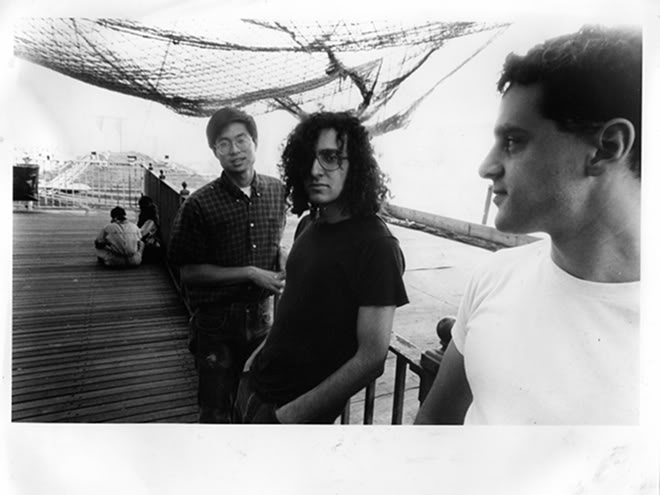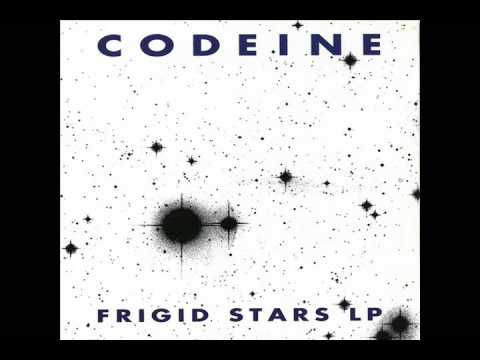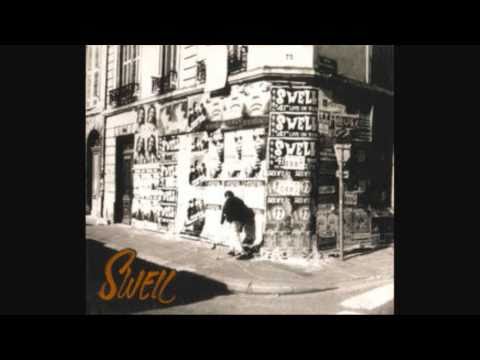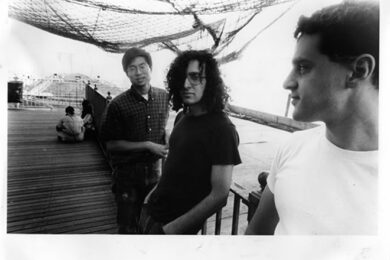When all that’s focused on is legends and pioneers, you get a crayon-sketch, a list of best-sellers. Let’s get one thing straight from the off. Fuck the pioneers. The pillagers and carvers of new territories. This be for, and about, the fellahin. Who? Francis Key knew: “I mean that reaction against the fathers which seems to occur about three times in a century. It is distinguished by a set of ideas inherited in modified form from the madmen and the outlaws of the generation before: if it is a real generation it has its own leaders and spokesmen, and it draws into its orbit those born just before it and just after, whose ideas are less clear cut and defiant.”
“Less clear cut and defiant”. That’s key to the music I’ll be talking about in this series. As a fan, a timid uncertainty is your birthright if you hit adulthood as the 80s become the 90s. As a freak wanting to be part of a freak lineage, you cling to your temporal closeness to the ‘meaningful’ punk/post-punk/hardcore-punk years, try and catch what ghosts of fire you can, aware that you’re at sufficient distance for it always to be at a remove, a fake-memory of connection. You were little when these ‘seminal’/’epochal’ things happened, you can’t time travel, and can only dream that kind of wholeness through the artefacts. As a musician you’re far away enough from that flashpoint to know that, in order for meaning to occur, you need to find out what it is you have to do with that thing in your hand – that lacquer-sealed antique lump of wood and wire you can’t abandon. The bands I want to talk about in this American edition of A New Nineties made that non-desertion of rock in its dying days into something genuinely heroic, deeply elegiac.
You’re going to laugh, but this I know – Jane’s Addiction were the last American band to make me believe in the open road, to make those old myths of American possibility feel real. They were the last band I believed in who I believed should be big. After that my focus was entirely away from the spotlight. The American bands who occupied me after JA’s last great blast of the old myths were those who came to play rock music at the end of its tether: at the moment its ability to shake shit up in the wider world seemed to have entirely absconded, at the moment even its most supposedly ‘underground’ impulses were being turned into commerce and taken to Hollywood. These bands had to find new frontiers within, new introspections and flamboyancies, new ways to make anonymity and penury the absolute opposite of failure. By the late 80s – with all the battles lost, played out – out seeped music closer to our hearts. The music less about belief, more about the titanic effort to believe in belief again.
Why? My cat, Thomas, grooming his spatz, said to me t’other day. “Si l’histoire est écrite par des cons, une histoire de cons émergera.” He’s right, dammit.
Prod a kid, any kid, go ahead, and ask ’em about 90s American rock bands, and hear just how much critique and commerce have become equated. Most of ’em will say Nirvana, Green Day, G n’R, Metallica. Some of the little twats might even say Blink 182. Some of them you wouldn’t even want to prod with a ten-foot prod-pole might say Smashing Pumpkins. If you’re lucky they might say FNM or Tool. I don’t consider that too ‘lucky’ to be honest. Staggering amount of misinformation out there, about ‘classic’ bands, ‘legends’, ‘quality’.
This is what happens when pop talk simply starts boggling at the figures and the numbers – we create a generational consensus that’s ever hardening, ever excluding those forgotten bands who can safely be trundled into oblivion under all this onward linear chronology. We’re perilously close right now to New Metal retrospectives, the same critical tricks that have turned the story of the American 80s into Black Flag & then fuck all til Nirvana. Urgent now to reaffirm what memories we have of 90s American music that wouldn’t let a flannel-shirt or a backwards baseball cap or fucking shorts anywhere near itself. Urgent to open up our eyes before they’re blinded by gold-discs, silver dollars, platinum-punk.
To you, outstandingly well-met, potentially bearded but no-less sweetly pretty Quietus reader it might seem like I’m tilting at windmills, but poisonous sports-rock lies are being fed to our kids, of US rock in the 90s being Grunge and then nu-metal before (ugh) Arcade Fire, The Strokes and MCR saved us all. Mainstream music writing in the 21st century has entered the final stage of its life-cyle. It embraced regurgitation & shed rigour a while back. It’s even shedding its numbing relativism and lack of poetry now. It’s finally pure & sure in its focus on the commercial as criteria for inclusion, the pass beyond pop-history’s velvet ropes.
50 Bands You Must Hear Or Die Trying To Hear Before You Die – so casual with your death because MUSIC’S more IMPORTANT than LIFE maaaan! And the obscurity becomes the focus with no elaboration as to why that obscurity was so unfair, or what was being mapped out by this music. This synopsification of rock, ‘this happened, then this happened, then this happened and that’s what happened’ – God, the deluge ignored through such Magoo-like blindness! Pop ‘history’ in that non-thematic, purely horological sense simply doesn’t have time for mad fixations on bands that were too much of a sudden flashed smear across the cosmos to predict the fall-out from or trace the onward drift. Bands that deny music’s traditional cultural compartmentalisation and instead insist on its abstract magic & romantic timelessness. Bands that reject our prejudices about American art, remind us of America’s confusion and torment, not just its conviction and ‘reach’.
They made records that are prayer-wheels for me, a zenith I’ve struggled to reach ever since. Genuine shock in song and bliss in sound. I sing and sling these names across the cosmos for all eternity as true voices of the American 90s – Bitch Magnet, Come, Codeine, Swell, Beekeeper, Swirlies, Labradford, Jessamine, Bowery Electric, Windy & Carl, Run On, Hurl, Spain, Tarnation, Rachel’s, Chavez, Shudder To Think, Rodan, Rex, June Of 44 – bands that made the true classics of the age, that blasted apart the limitations, political and musical and sexual, that the official version of American rock history insists upon. Bands who to this day ask severe, still-unanswered questions about where rock can go, whether the party’s over. These bands and the music they made were a last glorious funeral for American guitar-rock, a last glorious suggestion that escape can only come from a self-realisation, the tapping of the unbreakably unique in people broken apart by everything else.
To explore this music is going to require the shaking of habits, looking away from the hotspots to the cold-zones, forgetting the American spirit and finding what happened after that spirit got bricked-up and killed. The bands I’m gonna write about were temporal failures, but remain immortal victorious. If in the 80s the official version is so cavernously bereft of truth, don’t be similarly hoodwinked that the 90s was about grunge, nu-metal or any of that utter shit the American music press boosted, and that the UK press increasingly chased in the desperate search for youth’s elixir.
In contrast to the front covers and the front men and the gasbags of 90s US music, these band’s silence was crucial: you knew next to nothing about them, and could only find out stuff via the most unpredictable, sporadic contact – it increased the mystery, a mystery the frequently stunning music only amplified and exacerbated. That quest for silence, a space to be, is at odds with our still-pervasive & patronising notions of loud, proud, hollering America.
History is being writ not according to the greatest music, but the most influential business model, the most inspirational acts of compromise. And with things so money-minded, in the current astigmatic rush to break one of the greatest decades in pop music history down to a nu-rock putsch bookended by Nirvana and The Strokes, so much greatness is being ignored it’s criminal. I’m less interested in American music that’s sure of itself and the solipsist fantasies it’s enacting. I’m more interested in American music as locally rowdy, disturbing, charming, broken and blessed as American real life; tiny communities of refuseniks, psychedelics, junkies and the hopeless lost in America’s cold new world.
The strongest motifs of the 90s (despite the triumphalism of its most absurd hagiographers) were of a growing underclass, growing drug abuse, growing poverty, growing dislocation from the open road to the closed street. These gave us music with a downward momentum, an inward reach, music for the Fellahin, the in-between generation, born between revolutions both real and cosmetic. Musically speaking too young to be ‘part’ of hardcore, and fatally too old to see grunge or new-metal as anything other than the return of orthodoxies they were dimly hopeful had been destroyed. Deeper than that, the first generation of Americans to know that the road was closed – that American wildness, restlessness, in a geographical and economic sense, had been taken over by the right wing. Those not interested in pushing out to the ocean. Those who could only stay where they were and figure out how to reach out and in. Between the coasts and spun so dizzy only four trajectories could matter, up to heaven, down to the bone, in to the heart, out of their tiny minds.
Of course, as I did with the UK New Nineties, eventually, I want to look forward. But I can’t until we’re clear about the past. I don’t find looking back easy. You recall just how much these songs made you. How little there was of you left once you took the things you loved away. And how bitter that first realisation that the bad guys win and the good guys disappear proves to be.
If that’s all that the New Nineties were about I wouldn’t embark on it, and tQ wouldn’t run it. What’s startling is how many have never forgotten this music, how beautiful it is that some of these bands – Bitch Mag, Codeine, Chavez, Windy & Carl – are actually on their way back. But I’d just put up a playlist if I wasn’t still sure that there’s a battle to fight, a war to prevail in, a world to win. Battles about pop, and about writing about pop. As ever. Fuck the pioneers. This is for the fellahin and my mission is to make them parvenus.
We begin our story with the most important American band of the late 80s and early 90s, a band who pointed the way but who remain an utterly unique blast from the blue, a band who last winter made me sob in pure joy and who 22 years ago formed in perhaps the only place we can start our story. Oberlin, Ohio.
Bitch Magnet.
The band that made the American Nineties new.







